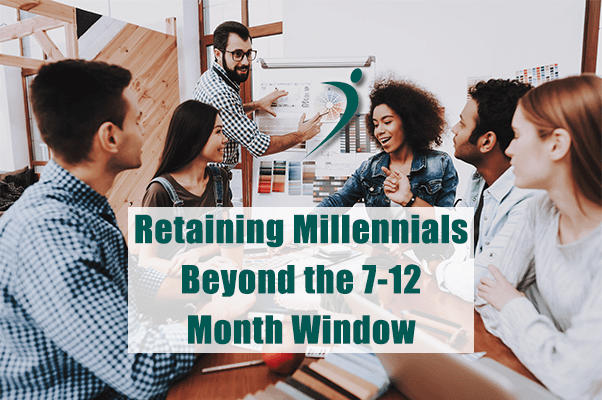
A new study from Express Employment Professionals found that more than three-quarters of businesses expect new college graduates to remain at their first job for less than a year. These numbers highlight a growing trend among millennials to job-hop during the first year or two after graduation. What’s behind the trend and what can businesses do to address it?
Why Do Millennials Tend to Job Hop?
Staggering student loan debt and fierce competition for desirable jobs has created a perfect storm for millennials applying for their first position. Several factors play into the job-hopping trend among young workers, making them more likely to take a position with no plans to stay long term:
- Job Competition—Intense job competition leaves many millennials in the position of taking a job they are overqualified for. When they see another opportunity that makes better use of their education, they jump at it.
- Professional Fulfillment—Unlike their baby boomer predecessors, millennials are less focused on stability and more focused on fulfillment. They want jobs that challenge them, allow them to reach their potential, and offer room for growth.
- Individualism—Rather than approaching jobs from the perspective of mutual benefit, many millennials are laser-focused on individual goals and ideas. More than half want to start their own businesses or have already done so, but the slow economy requires them to work another job while they get on their feet. While that entrepreneurial creativity and energy can be great for a business, there also has to be a certain level of commitment to an employer in order for both parties to benefit.
Cultivating Satisfaction and Retention
Keeping millennials on board for longer periods of time will benefit both workers and businesses. While education and experience look good on a resume, future opportunities also rely heavily on professional networking and recommendations. Young workers will benefit from building strong relationships with professional mentors during the first job experience, while businesses benefit from a more reliable workforce.
Some companies have begun to address the problem by asking young workers to sign on for a minimum 2-3 year commitment in order to accomplish a specific objective. These mission-critical jobs appeal to millennials because they offer opportunities to hone specific skills, invest in a company, and build a portfolio. They benefit companies because they elicit a commitment to project completion. As these young workers learn to operate as part of a team, they develop essential skills that will serve them well throughout their professional careers.
Screening for Cultural Fit
Another way to cultivate mutual benefit for both businesses and employees is to screen job candidates for those who fit well into the culture of the company. Hire Velocity incorporates this screening into the qualifying process, creating a pool of candidates most likely to provide a long-term solution to talent needs.
Businesses can make themselves more appealing to millennials by making the work environment more flexible, offering opportunities for social impact, and prioritizing professional growth. This generation of workers won’t be satisfied with a job. They want a mission, and companies who incorporate this philosophy into the workplace will be more likely to retain young workers beyond the first year.

